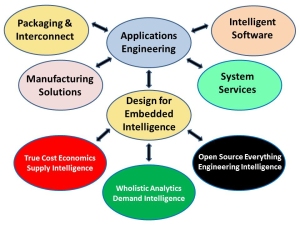
Venkat
RibbonFarm, 3 April 2013
Last week, I figured out that I am a part-time locust. Here’s how it happened.
I was picking the brain of a restauranteur for insight into things like Groupon. He confirmed what we all understand in the abstract: that these deals are terrible for the businesses that offer them; that they draw in nomadic deal hunters from a vast surrounding region who are unlikely to ever return; that most deal-hunters carefully ensure that they spend just the deal amount or slightly more; that a badly designed offer can bankrupt a small business.
He added one little factoid I did not know: offering a Groupon deal is by now so strongly associated with a desperate, dying restaurant that professional food critics tend to write off any restaurant that offers one without even trying it.
Yet, I’ve used (and continue to use) these services and don’t feel entirely terrible about doing so, or truly complicit in the depredations of Groupon. Why? It’s because, like most of the working class, I’ve developed a locust morality.
Thinking about locusts and the behavior of customers around services like Groupon, I’ve become convinced that the phrase “sharing economy” is mostly a case of putting lipstick on a pig. What we have here is a locust economy. Let me explain what that means.
Phi Beta Iota: This is a very provocative piece, with a tip of the hat to Jean Lievens whose selections are always first-rate finds. The author is half right. We are indeed locusts when we allow ourselves to be herded by well-intentioned but ignorant or poorly developed concepts. Were GroupOn truly virtuous, it would be helping consumers understand the true costs of all goods and services, with the incidental result of helping move entire marketplaces away from cola and processed foods and toward vegan dietary habits. The critical ingredient in information converted into intelligence (decision-support). As we are now striving to articulate, the combination of Open Source Everything Engineering, True Cost Economics (Supply Intelligence), and Holistic Analytics (Demand Intelligence) are the tri-fecta for the renaissance of humanity. The below graphic was created for a great university thinking about embedded intelligence. The three missing pieces were those at the bottom, as devised by Robert Steele, our founding editor and curator. Design rules — but only if it is focused on these three elements that must define a future characterized by ephemeralism — doing more with less. Tom Atlee has some excellent thoughts on collective idiocy versus collective wisdom, see his reflections as well, please.

See Also:



